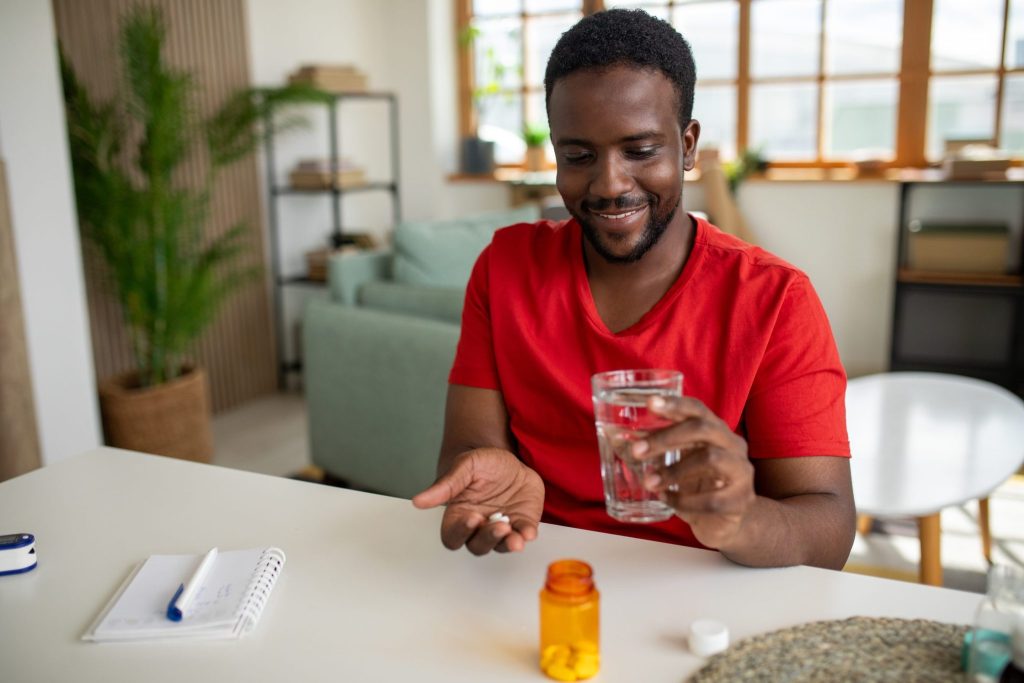Vitamin D plays an important role in your energy levels and the health of your bones, brain, heart, and gut. Now, researchers say this powerhouse vitamin may also play a crucial role in lowering risk for colorectal cancer, which has been on the rise in younger adults, becoming the leading cause of cancer death for men under 50, and the second leading among women under 50, according to the American Cancer Society.
A study published in the journal Nutrients has linked vitamin D levels with colorectal cancer risk. Reviewing data from 50 different studies on vitamin D and colorectal cancer, researchers found that those with the highest dietary intake of vitamin D (80 ng/mL) had a 25% decrease in colorectal cancer risk compared to those with the lowest amount (10 ng/mL). Additionally, data from the Nurses’ Health Study—a large, long-term U.S. study that has investigated the risk factors for the top chronic diseases in women—revealed that women with the highest vitamin D intake had a 58% lower risk of colorectal cancer compared to those with the lowest intake.
“Maintaining optimal vitamin D levels and adequate dietary intake is crucial in preventing CRC and improving patient prognosis,” the study authors wrote.
How vitamin D affects colorectal cancer risk
Researchers state that vitamin D plays a crucial role in immune system regulation enhancing the function of important organs of the immune system like the spleen and lymph nodes, while boosting T-cell activity—a type of white blood cell that helps prevent infection and fight cancer.
Adequate vitamin D levels also can support overall gut health. The study authors state that vitamin D can support receptors in your gut to improve calcium absorption and strengthen your intestinal barrier, which allows your gut to absorb nutrients while keeping out harmful bacteria.
Vitamin D deficiency can weaken the intestinal barrier, which allows unwanted substances from the intestine to enter the bloodstream, causing inflammation, which fuels cancer growth, the authors wrote. But they found that having high vitamin D levels can help reduce that inflammation.
How much vitamin D do you need?
About 35% of U.S. adults are vitamin D deficient, according to the Cleveland Clinic—and the study authors note that it is particularly common among adults ages 19 to 44.
The daily recommended dietary allowance for vitamin D is 600 IU for those aged 1 to 70, while older adults are recommended to take 800 IU per day. The American Academy of Pediatrics recommends 400 IU of vitamin D per day for infants.
Talk with your doctor before taking vitamin D or any supplement, as it can interfere with certain medications, according to the Mayo Clinic, including cholestyramine, a cholesterol-lowering drug, the heart medicine digoxin, steroids, stimulant laxatives, and certain blood pressure medications such as diltiazem and verapamil.
Be careful with your dosage, too—excessive vitamin D can be toxic. Vitamin D toxicity leads to hypercalcemia, according to the Mayo Clinic, which can cause upset stomach and vomiting, weakness, frequent urination, and may also lead to bone pain and kidney issues such as kidney stones. Check with your doctor about the appropriate dose.
How to boost your vitamin D levels
Beyond supplementation, research suggests that five to 30 minutes of sun exposure between 10 a.m. and 4 p.m., preferably daily, but at least twice a week, without sunscreen can help you meet your vitamin D needs.
You can also get vitamin D through food, including:
- Fish like salmon, trout, and tuna
- Orange juice or milk fortified with vitamin D
- Mushrooms
- Yogurt
- Egg yolks
For more on supplements:
- Scientists uncover a breakthrough in how probiotics impact mental health
- New health benefit of omega-3s: Study shows the supplement may slow down the aging process
- The dietary supplements you think are improving your health may be damaging your liver, research warns
- How vitamin B12 could give you an energy boost
This story was originally featured on Fortune.com







